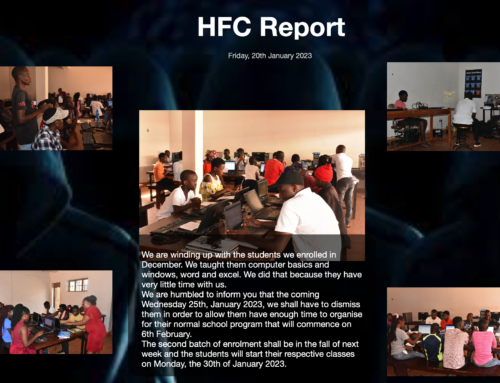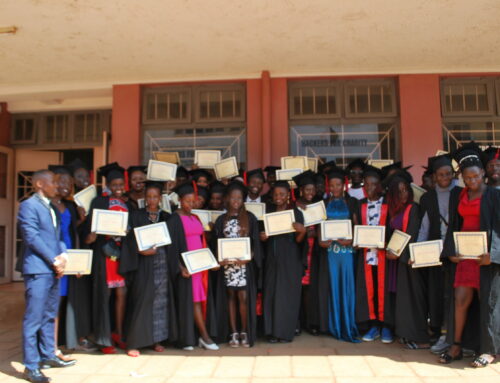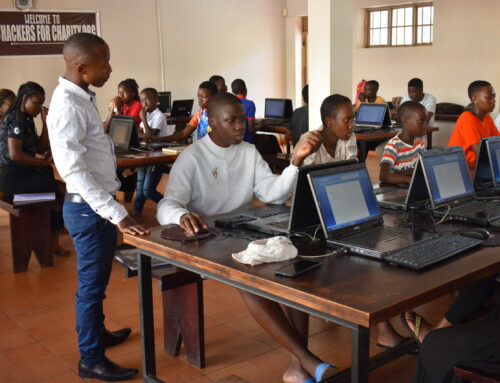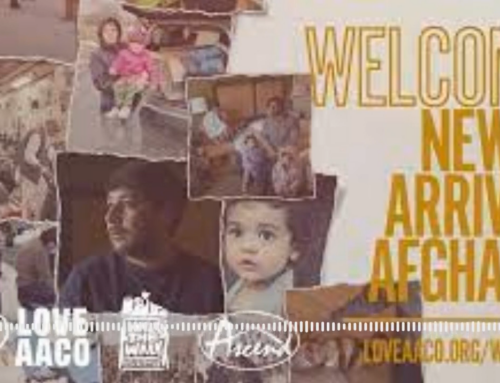
Daniel Stern demonstrating the Pelican Pi
This week has been pretty hectic. It began with a visit from my friends Daniel and Lisa Stern. I’m always happy to have them visit because they are some of the busiest people I know. Daniel is a legend here in Uganda. He’s been working here for decades, and I first heard about him when I was researching computers and technology in Uganda. Five years ago, about the only hit of any merit was Daniel’s UConnect.org website. At the time, he had installed computer in something like 300 schools. His story was inspirational to me and part of what encouraged me that technology was possible here. I don’t think Daniel would describe himself as a hacker, or even as a technologist, but we have a lot in common with us because he pushed the envelope of technology and did something no one had ever done before.
When we finally met a few years ago, I was captured by his energy and his passion. He seemed to run on an amped-up power cell and I remember thinking to myself that, “It must be exhausting to be him”. I still remember the old military vehicle he converted into a portable computer classroom. If I sat down and thought about the problem of brining computer education opportunity to the farthest reaches of Africa, I would have thought about a massive military vehicle and quickly written the idea off because of the nearly-impossible logistics of not only important a wicked military vehicle, but of all the difficult transformations it would need to pass through to actually work, and work well. Well, Daniel did it, and when I saw it in person, I knew that Daniel was my kind of guy. Not as technical perhaps, but he makes up for it in vision, passion and energy and clearly he lets very little stand in his way. These days, Daniel is a mover in East Africa. He’s connected to so many top officials in so many countries and this allows him to get big things done, and done well. I thought for sure that my days of being able to do anything worthwhile for Daniel (by myself or through HFC) were long past.
Daniel himself introduced me to RACHEL many years ago. Over the years we have both begged borrowed and stolen to get travelers to download RACHEL updates and shuttle them over to us because we didn’t have the bandwidth to download it (nor the updates) ourselves. Over the years, I have personally deployed dozens of RACHEL installations all over Uganda and Kenya, and recently we’ve begun working with worldpossible, GCF and Learning equality to create a mega-package that works really well together. Then Sam got a bug in his britches about the Raspberry Pi and developed the “Pelican Pi” (we need a better name) and the package came together as a low-cost, super-awesome educational deployment package which along with the Chromebook client works well anywhere and is low-power and super-resilient.
So I was admittedly surprised when Daniel caught the Raspberry Pi bug and asked if we could solve the power problem he was having. I told him we could handle that (actually I knew we could kick that problem in the.. well, I knew we could solve that) and brought a couple of Sam’s Pelicans to Uganda. Between Derby, and my gig in San Diego and then the kids vacation, and several software problems with the Pi, I’m just now at the point that I can do real live demos of our setup.
Like I said, Daniel came to Jinja last week and I was able to give he and Lisa a demo of the setup. They were THRILLED. It was so encouraging seeing how thrilled they were. We geeked out about it for quite a hile, then got down to business.
“What’s your plan,” Lisa asked, very point-of-fact.
I told her my plan was to give them a Chromebook and a Pelican, let them use it, demo it to the right people and then tell us their thoughts.
But she persisted. “What’s your plan for getting them here, for building them?”, she asked.
I explained that we figured we could enlist the help of hardware “students” at hacker conferences and in hackerspaces to help with the build. So many people are interested in learning basic hardware skills and this project is relatively simple to assemble. At Derby, we even discussed the idea of a buy-one-make-two project, where you buy a Pelican and assemble it yourself, along with assembling a unit for a school that needs one. I knew we would have logistical problems with domestic shipping, but those paled in comparison to the International shipping challenges. On a small scale, we could use the “suitcase network” to bring in ten units at a time but when things scaled up, we would need something better. For now, I’m leaving the large-scale problem to the Sterns, who have shipped more gear here than anyone I know. They also told me that educational equipment (including computers) ship duty-free, so that should help.
We parted ways very excited, but I’ve had a lot of work to do this past week to work out the kinks in the setup. First, I needed to document the software build on both the Pelican server and the Chromebook’s SD card and image them before I put them out into “the wild”. Imaging has been especially slow, and I’ve had to order another hard drive to handle the various 32 and 64gb images and also store all the master copies of Rachel, Khan and GCF.
Meanwhile, as much as I want to work on this full-time, I’m pulling double-duty so there’s lots of other stuff to do, not the least of which is taking care of Declan, who I managed to somehow get sick with a nasty bacterial infection. So, I’m taking baby steps, but at least they are baby steps forward. And as long as I’m managing that in every area of my life, I think things will be ok.





